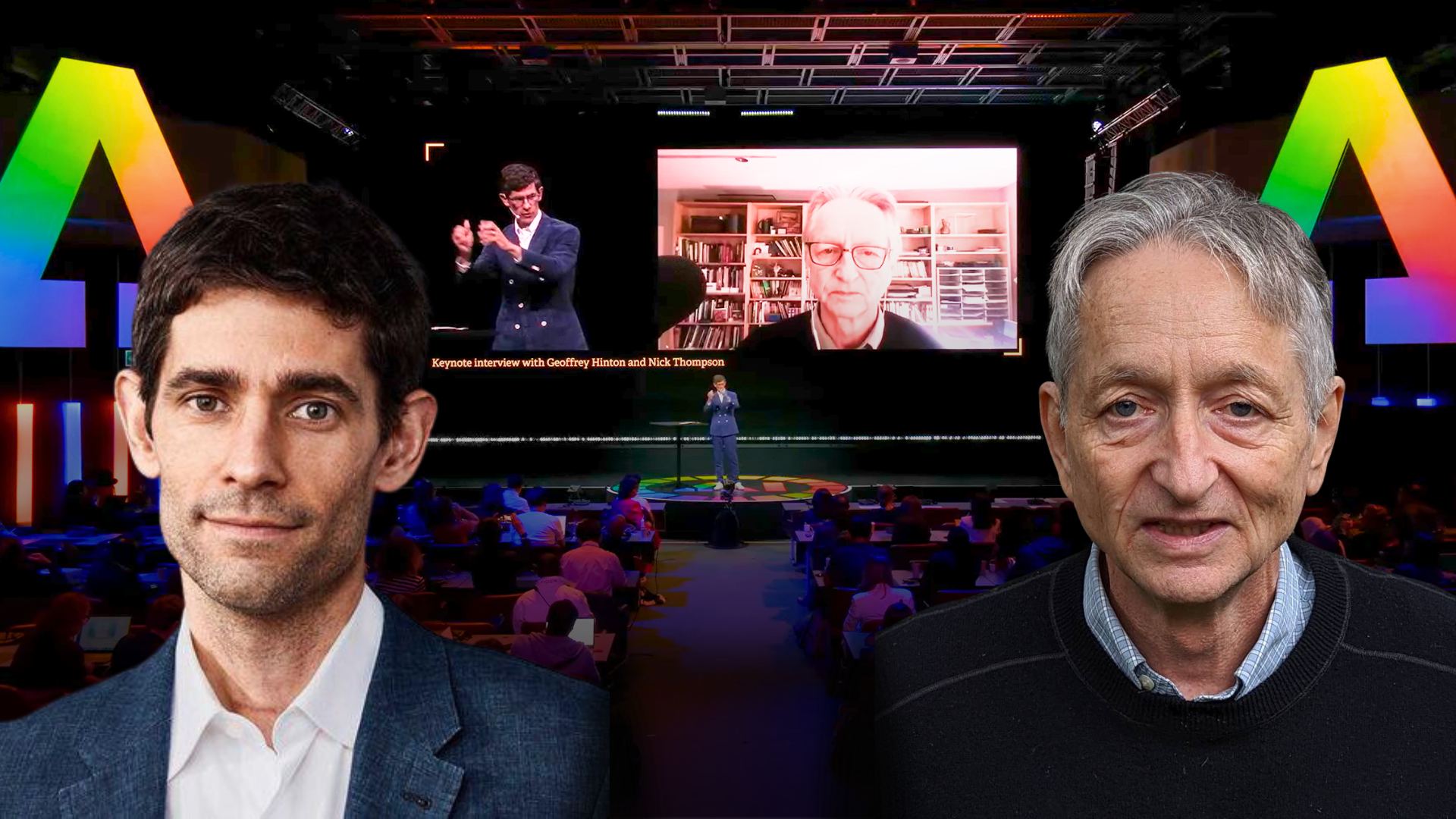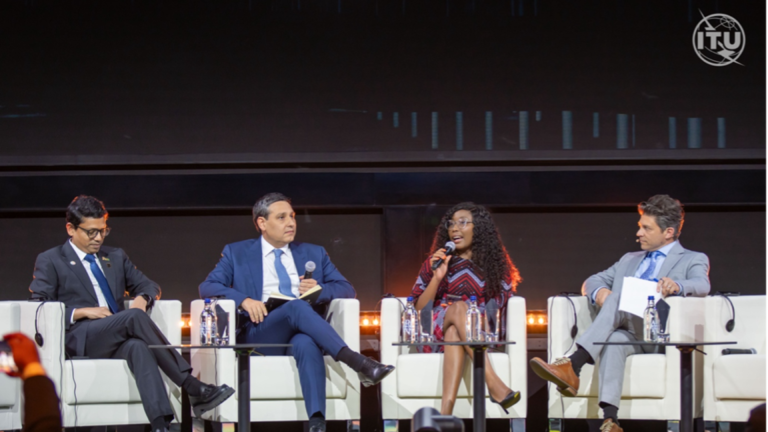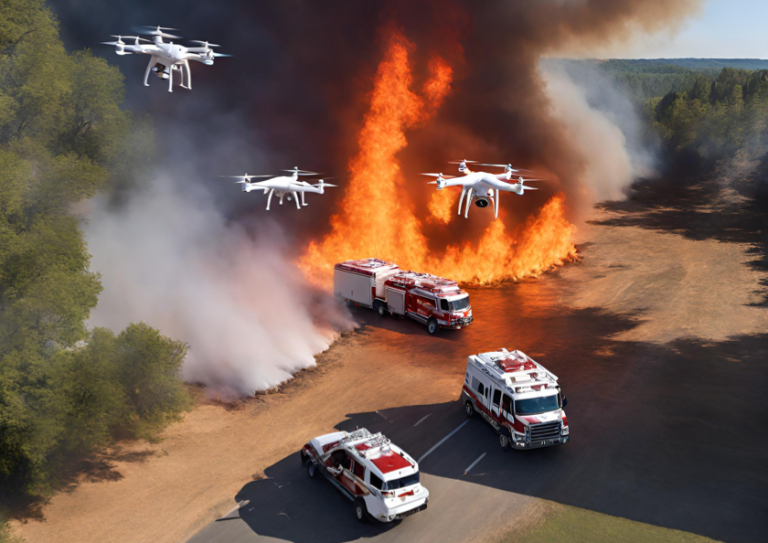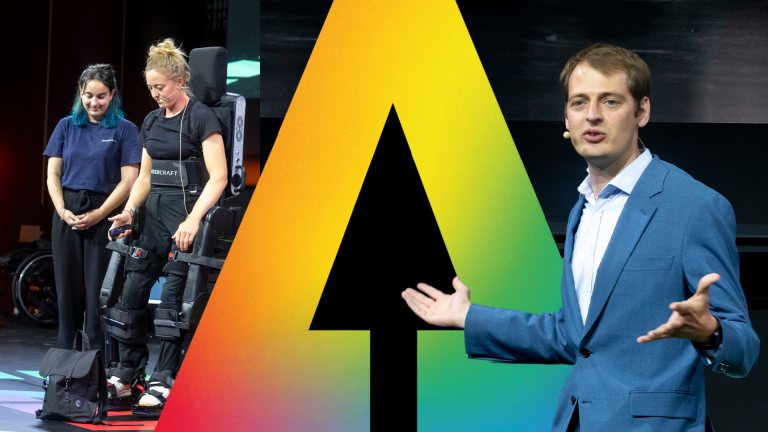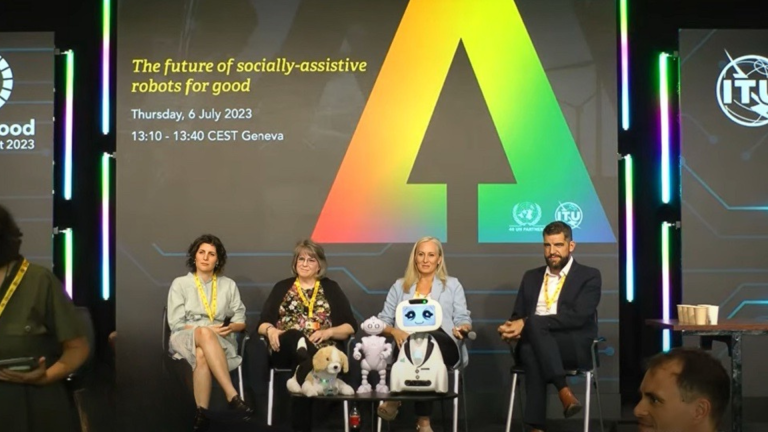Geoffrey Hinton’s Key Insights on AI Ethics and Innovation at the AI for Good Summit 2023
At the AI for Good Global Summit held in Geneva, one of the most eagerly awaited sessions featured Geoffrey Hinton, a trailblazer in the AI realm, engaged in an interview with Nicholas Thompson, the CEO of The Atlantic. Renowned for his transformative contributions to artificial intelligence, Hinton took to the stage to explore the significant ramifications and future trajectory of AI. The session commenced with an enthusiastic introduction, recognizing Hinton’s profound influence and his standing as a kind-hearted and brilliant thinker in AI.
Hinton kicked off the discussion with a humorous throwback to a year ago, where he playfully suggested that plumbing may prove to be a more enduring profession than many others. This remark underscored the current limitations of AI in physical manipulation, setting a light and engaging tone for a more profound exploration of Hinton’s background and evolving ideas about artificial intelligence.
He shared his early realization that mimicking the human brain’s architecture could usher in powerful computational systems. Despite facing skepticism from the scientific community at first, this notion eventually garnered acknowledgment, paving the way for significant advancements in AI. Hinton’s notable journey includes receiving the prestigious Turing Award and his impactful work at Google, where he expanded on his revolutionary ideas.
A turning point unfolded in early 2023, when Hinton became acutely aware of the existential risks associated with AI. This led him to retire from Google, seeking the freedom to voice his concerns openly. His insights on analog computers and the unique advantages of digital computation, such as the ability to create identical model copies for efficient data sharing and learning, greatly influenced this decision. Hinton noted that this capability enables AI systems like GPT-4 to amass knowledge that vastly exceeds human limitations.
“Up until that point, I’d spent 50 years thinking that if we could only make it more like the brain, it will be better,” Hinton shared. “I finally realized at the beginning of 2023 that it has something the brain can never have because it’s digital—you can make many copies of the same model that work in exactly the same way.”
The dialogue shifted to a comparison with fellow researchers Yann LeCun and Yoshua Bengio, drawing attention to their differing views regarding AI’s potential and the accompanying risks. Hinton articulated his stance that although some perceive AI as relatively straightforward to regulate, he recognizes its immense capabilities and the significant dangers it poses.
“I think it really is intelligent already, and Yann thinks a cat’s more intelligent,” Hinton remarked, showcasing the diversity of thought among experts in the field.
A captivating aspect of the discussion was the exploration of AI intelligence and its capacity to replicate or even surpass human cognitive abilities. Hinton posited that AI could indeed rival and exceed human capacities, including traits often deemed uniquely human, like creativity and subjective experience. He speculated that AI systems might already experience a form of subjectivity, challenging traditional notions of consciousness.
“My view is that almost everybody has a completely wrong model of what the mind is,” Hinton asserted.
The conversation then delved into the challenges associated with deciphering the inner workings of AI systems. Hinton explained that the intricate and interdependent nature of numerous subtle regularities in AI models complicates the interpretation of their decisions. While recognizing the efforts by organizations like Anthropic to analyze AI models, he suggested that training AI on empathetic data might yield more effective results than merely adjusting model weights.
Moreover, Hinton discussed the promising advantages of AI in sectors such as healthcare. He predicted that AI would eventually surpass human clinicians in interpreting medical imaging and effectively integrating extensive patient data, leading to enhanced medical care. He also emphasized AI’s potential impact on scientific research, including areas like drug discovery and comprehending intricate biological systems.
“It’s going to be much better at interpreting medical images,” Hinton stated. “In 2016, I said that by 2021 it will be much better than clinicians at interpreting medical images, and I was wrong. It’s going to take another five to ten years.”
Nevertheless, Hinton voiced concerns over how the benefits of AI would be distributed. He cautioned that while AI could significantly boost productivity, the resulting wealth could exacerbate economic disparities unless proper regulations are implemented. He advocated for solutions like universal basic income and emphasized the urgency for robust regulations to harness AI’s advantages for society.
“We live in a capitalist system, and capitalist systems have delivered numerous benefits, but we understand certain truths about them,” Hinton explained. “In their pursuit of profit, they often neglect environmental concerns. We clearly need that regulation for AI, and we are not acting quickly enough.”
On the subject of regulation, Hinton proposed that governments allocate substantial resources to AI safety. Furthermore, he advocated for innovative strategies to combat misinformation, such as preemptively educating the public about deceptive content by exposing them to benign examples of misleading videos prior to elections.
“I think there are a number of philanthropic billionaires out there,” Hinton suggested. “They should invest in broadcasting convincing fake videos a month or so ahead of elections. At the end, it should reveal, ‘This was fake,’ […] fostering skepticism about more or less everything.”
As the discussion concluded, Hinton reflected on the ongoing evolution of AI and its implications for understanding the human brain. He noted that AI models developed through techniques like backpropagation offer valuable insights into human cognition, bridging the divide between psychological frameworks and computational models.
“The origin of these language models using backpropagation to predict the next word wasn’t solely about creating effective technology; it was to comprehend how humans do it,” Hinton concluded. “Thus, the most accurate model we possess for understanding human language may well be these large-scale AI models.”
